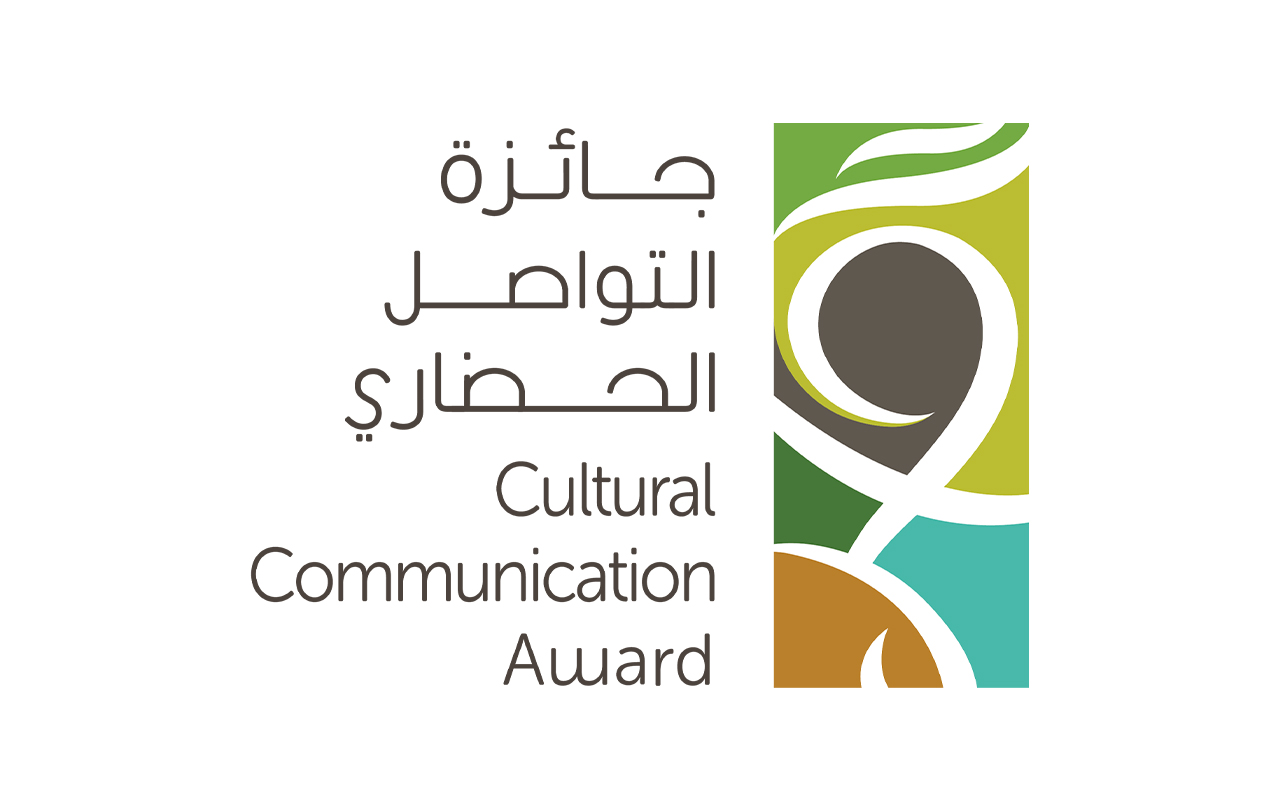National Cultural Communication Award
The National Cultural Communication Award (formerly known as the National Dialogue Award) is an annual national award in the Kingdom of Saudi Arabia. Established by the King Abdulaziz Center for Cultural Communication (KACCC) (formerly the King Abdulaziz Center for National Dialogue) on December 15, 2020, the award aims to promote the values of tolerance, coexistence, and national unity. It encourages the contributions of government and private institutions, civil society organizations, and individuals to highlight and strengthen these values within society.
Goals of the National Cultural Communication Award
The award seeks to contribute to the realization of the goals of Saudi Vision 2030 by recognizing efforts that foster the values of moderation, tolerance, and coexistence within society, while safeguarding national identity and strengthening the social fabric. It also aims to culturally engage with the world in a way that enhances the Kingdom's global image and promotes intellectual and human dialogue, as well as cultural exchange. Additionally, the award encourages government entities, civil society organizations, the private sector, international bodies, and individuals to implement or back programs that champion these values of moderation, tolerance, coexistence, and the preservation of national identity.
National Cultural Communication Award categories and phases
The award consists of five categories: the first honors government institutions that promote values of coexistence, tolerance, and national cohesion; the second recognizes private sector institutions that have supported societal programs fostering tolerance and dialogue; the third highlights cultural, scientific, and charitable civil society organizations; the fourth celebrates individuals with innovative and outstanding contributions in this area; and the fifth acknowledges international non-profit organizations that support or implement impactful programs within Saudi society.
The National Cultural Communication Award process unfolds in six phases: receiving nominations, closing the nomination period, sorting the applications, conducting evaluations by specialized committees, announcing the winners, and finally, presenting the awards.
First edition of the National Cultural Communication Award
The first edition of the National Cultural Communication Award (formerly the National Dialogue Award) in 2021 saw around 208 participants across four categories. The government sector had approximately fifty-seven participants, the private sector had nineteen, civil society organizations reached thirty-eight participants, and the individuals' category featured ninety-four participants.
The Ministry of Justice's "Shaml" initiative, aimed at creating a supportive environment for children in custody visitation and safeguarding while offering psychological and social assistance to both the children in custody and their parents, along with King Abdulaziz University, represented by the Prince Khalid al-Faisal Institute for Moderation, which focuses on promoting a moderate approach by fostering national unity, and combating extremism, won among government institutions.
In the private sector category, al-Fozan Holding Company won the "Mujassam Watan competition," a competition launched in 2018 to design artwork symbolizing national unity and the history of the Kingdom, to be featured on National Day each year.
Winners from the civil society institutions track include Abdulaziz Bin Talal and Sora Bint Saud Foundation for Human Development for 'Ahyaha' initiative, in addition to the Charity Center for Learning the Holy Quran and its Sciences through the Tallam (Learn) Program.
Mohammed al-Mousa won the prize in the individual track for his cultural, social, and tourism program, Lil Dahsha Hedn (A Home for Astonishment), which supports domestic tourism development.
Second edition of the National Cultural Communication Award
The second edition of the award (under the designation of National Dialogue Award) was launched on June 8, 2022, attracting a total of 172 submissions. Among these, 108 came from individuals, followed by twenty-nine from the government sector, eighteen from the private sector, and seventeen from civil society organizations.
In the government sector, the Authority of People with Disabilities won for its 'Purple Saturday' initiative, and the Holy Makkah Municipality earned recognition for the 'Muwasat' (Consolation) initiative. In the civil society sector, Alwaleed Philanthropies, the Young Leaders Qualification Program for Global Communication, and the Salam for Cultural Communication were awarded.
Among private sector institutions, the Waqf of Mohammed Bin Ahmed al-Rashid and the Abdullah al-Othaim and Sons Charitable Foundation for Hayat Muhammadiyah Initiative. The winner from the individuals category was the “Saudi Arabia, the Homeland of Tolerance” initiative launched by Zakia Suhail al-Lahyani.
Third edition of the National Cultural Communication Award
The third edition of the award (under the designation of National Dialogue Award) was launched on February 7, 2023, attracting a total of 227 entries. The largest share came from the individuals category with 140 entries, followed by the government sector with fifty-eight, the private sector with twenty-seven, and civil society institutions with seventeen entries.
The award for government institutions was given to Ehsan platform's VIP Portal initiative. The private sector award went to the Saudi Electricity Company for its “Social Responsibility” initiative, while the Civil Dialogue Society won the civil society institutions category for its “Civil Dialogue Corner” initiative. In the individuals category, the award was granted to a group of female teachers for their initiative, “Here are the World’s Students... Tolerance Unites Us.”
Fourth edition of the National Cultural Communication Award
The fourth edition of the National Cultural Communication Award, launched on January 31, 2024, in its new designation, featured five categories: the Cultural Communication Award for government entities, the Cultural Communication Award for civil society institutions, the Cultural Communication Award for international non-profit organizations and institutions, the Cultural Communication Award for the private sector, and the Cultural Communication Award for individuals.
